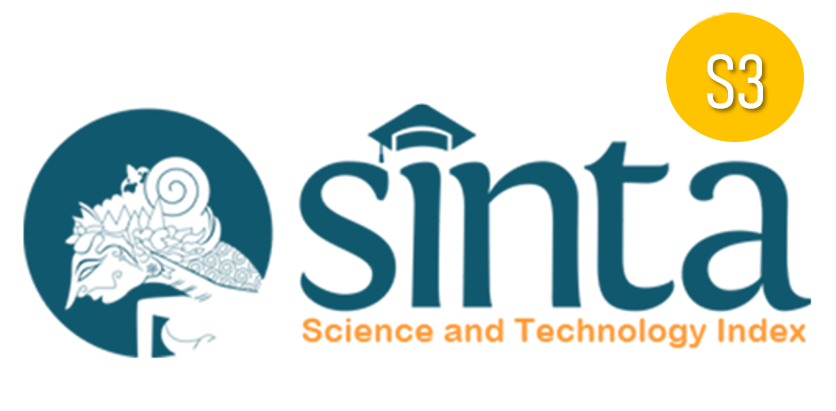Ergo Design of Mentoring in the National Ecosystem of Vocational Education in The Period of the 10th Technological Order
Abstract
Keywords
Full Text:
PDFReferences
Apriana, D., Kristiawan, M., and Wardiah, D. (2019). Headmaster’s competency in preparing vocational school students for entrepreneurship. International Journal of Scientific and Technology Research, 8(8), 1316-1330.
Berezovska, L. I., Kondratska, G. D., Zarytska, A. A., Volkova, K. S., and Matsevko, T. M. (2020). Introduction of new forms of education in modern higher and vocational education and training. International Journal of Higher Education, 9(7), 107-118.
Chow, J. Y. (2013). Nonlinear learning underpinning pedagogy: Evidence, challenges, and implications. Quest, 65(4), 469-484.
Glushchenko V.V. (2019). Product model of functioning of universities in higher machine-building industry education. Kazakhstan Science Journal, 10(11), 37-56.
Glushchenko V.V. (2022a). Formation of a mechanism for managing the work of project teams in the conditions of the 9th technological order. The Scientific Heritage, 5(84), 10- 17.
Glushchenko V.V. (2022b). The concept of project activity of organizations in the period of the 9th technological order. The Scientific Heritage, 4(83), 24- 34.
Glushchenko V.V., Glushchenko I.I. (2018). Improving the quality of education based on the application of the principles of lean higher education. Competence, 2(153), 24-26.
Glushchenko, V. V. (2021a). Strategic planning of organizations 'transition to the sixth technological order in the national economy. International Journal of Engineering Science Technologies, 5(1), 30-46.
Glushchenko, V. V. (2021b). Synthesis of effective ideas of innovative projects during the development of the eighth technological order. International Journal of Engineering Science Technologies, 5(5), 99-118.
Glushchenko, V. V., Presnuhina, I. A., and Samodelova, E. V. (2021c). Improvement of service quality in higher professional education by application of lean manufacturing theory in universities. International Journal of Engineering Science Technologies, 5(1), 18-29.
Ilakavicius M.R. (2021). Mentoring in the ministry of internal affairs of Russia: Reboot. Questions of Pedagogy, 11(2), 208-211.
Loseva A.L. (2022). Mentoring as a tool for accelerated adaptation of new teachers. Siberian Teacher, 1(140), 45-51.
Loures, L., Panagopoulos, T., and Burley, J. B. (2016). Assessing user preferences on post-industrial redevelopment. Environment and Planning B: Planning and Design, 43(5), 871-892.
Mahmood, H., and Alkahtani, N. S. (2018). Human resource, financial market development and economic growth in Saudi Arabia: A role of human capital. Economic Annals-XXI, 169, 31-34.
Ozturk, I. (2008). The role of education in economic development: a theoretical perspective. Journal of Rural Development and Administration, 33(1), 39-47.
Posey, C., Lowry, P. B., Roberts, T. L., and Ellis, T. S. (2010). Proposing the online community self-disclosure model: the case of working professionals in France and the UK who use online communities. European Journal of Information Systems, 19(2), 181-195.
Pozdeeva S.I. (2017). Mentoring as an activity support of a young specialist: models and types of mentoring. Scientific and Pedagogical Review,2(16), 87-91.
Romanov, V. A., and Egorova, Y. A. (2021). Mentoring as a condition for training a competent teacher. Представительная Власть-XXI Век: Законодательство, Комментарии, Проблемы, 3, 44-47.
Savchenko I.V. (2021). Mentoring as the basis of practice-oriented professional education bulletin of Donetsk national university. Bachelor of Economics and Bachelor of Laws, 2, 159-169.
Smyslova O.Yu., Osipova I.V., Filonenko N.Yu., Lakomova D.V. (2020).
Digital transformation of mentoring institution in the public service. Modern Economics: Problems and Solutions, 7(127), 107-117.
Thomas, L. (2012). Building student engagement and belonging in Higher Education at a time of change. Paul Hamlyn Foundation, 100, 1-99.
DOI: https://doi.org/10.17509/ijert.v2i3.50378
Refbacks
- There are currently no refbacks.
Copyright (c) 2022 Universitas Pendidikan Indonesia (UPI)

This work is licensed under a Creative Commons Attribution-ShareAlike 4.0 International License.







.png)




